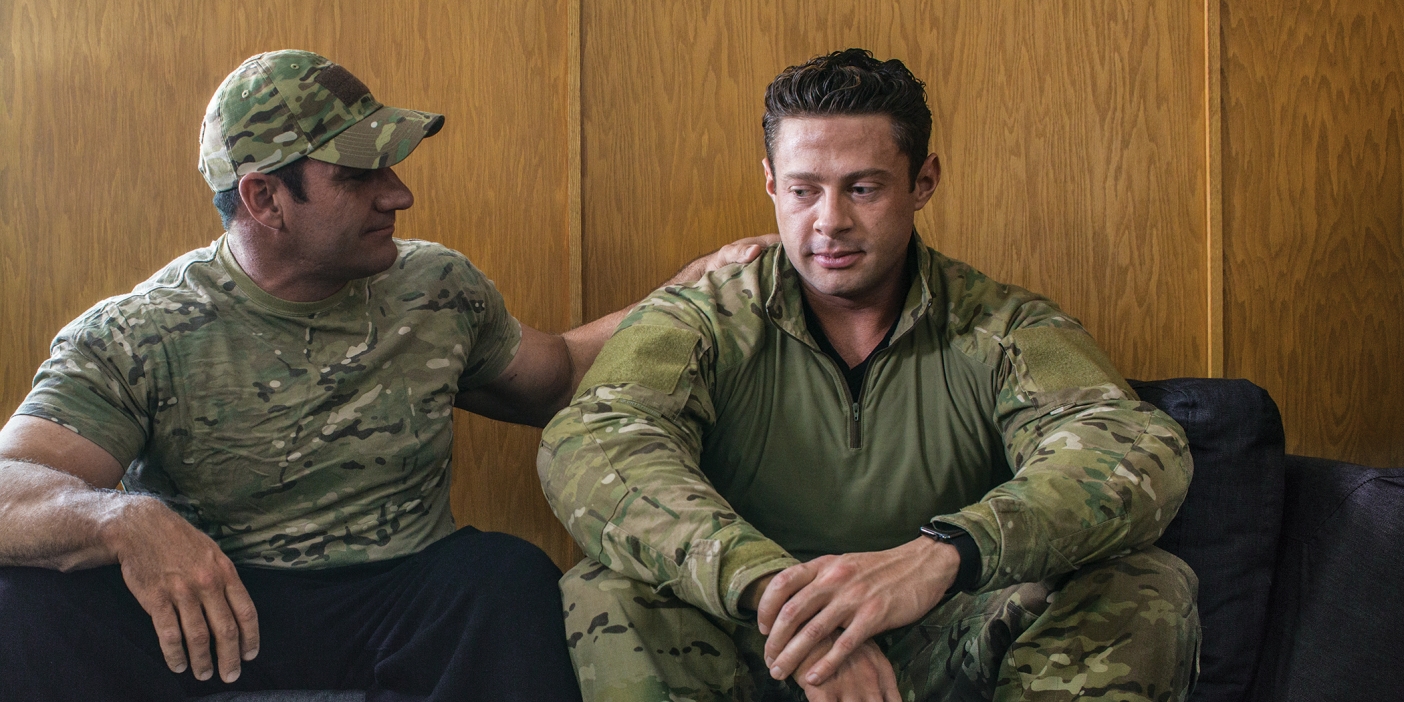You can learn to be as kind to yourself as you are to others.

Several years ago, Heather Harris Bergevin (’20) developed a chronic illness and, along with it, a tendency to speak harshly to herself about her diminished ability to get things done. “I had a year of the Couch Woman, in which I would lie on the sofa and condemn myself for dust on the television across the room but didn’t have the energy to take care of it,” she recalls. “I realized I could either hate myself for my medical condition, or I could adapt and learn to love what I was capable of doing.”
Bergevin, a single mother of three children, ages 18, 16, and 10, has become better at self-compassion and at teaching her children to be compassionate toward themselves. They’ve adopted the family motto “fresh courage take,” from the Latter-day Saint hymn “Come, Come, Ye Saints.” Her family doesn’t see the phrase as something to accomplish or as a call to improve but rather as a reminder that inside them, they have what it takes to summon the emotional resources they need. “Some days truly need a fresh infusion of courage, not skill,” says Bergevin.
BYU professors and spouses Gary M. Burlingame and Kara I. Cattani (BS ’96) study self-compassion and recently ran compassion-focused therapy groups as part of an international research project. Compassion is generally defined as awareness of suffering and a commitment to relieve it. Self-compassion is awareness of our own suffering and devotion to relieve it in ourselves. Cattani says creating “more well-being for my loved ones and myself” is a key life value that requires both compassion and self-compassion.
The professors recommend that individuals and parents understand the value of self-compassion, learn compassionate self-talk, and model self-compassion for their children.
Understanding the Value of Self-Compassion
Generally in American culture, say professors Burlingame and Cattani, research shows that people find it easier to show compassion to others than to themselves. From an early age, pretty much everyone is taught to be kind and helpful to others and is praised for doing so. Self-compassion, however, is not taught as a virtue and neither is receiving compassion.
Though most of us don’t have these skills, says Burlingame, we can learn them. They include quieting our inner critic with kind and gentle words toward ourselves, caring about ourselves enough to draw healthy boundaries, and sharing our struggles with trusted friends and family who can support and comfort us.
The benefits of self-compassion are well established in research literature—lower levels of anxiety and depression, higher levels of happiness, stronger resilience, and better body image, say the professors. While self-compassion is neglected as a virtue in the public sphere, families and individuals can choose to make it a priority.
Learning to Self-Soothe with Self-Talk
A key self-compassion skill is speaking kindly to oneself. Burlingame says we can all cultivate “that compassionate voice that doesn’t try to make difficulties go away or diminish accountability for mistakes but makes it safe to talk to ourselves about these things in patient, caring, and gentle ways.”
He teaches clients to create “a little Carl Rogers” inside their heads, referring to the eminent psychologist known for his client-centered therapy that features deep warmth and unconditional positive regard.
At the beginning of compassion-focused therapy groups, Cattani and Burlingame encourage group members to accept their flaws and balance their lives within the limits of their biology and background. “So if you were poorly parented, you accept yourself as easily triggered and are kind to yourself when the triggers appear. If you have schizophrenia, you accept that your brain chemistry is tough and treat yourself extra kindly,” says Cattani. “You speak to yourself in loving ways and talk about yourself with others as gently as you would speak about another person with your same challenges. Your own voice is a simple thing but potentially a very rich source of compassion.”
The professors also teach group members about mindful body awareness: What are my hands doing right now? Am I wringing them? Am I clenching my jaw? When we’re able to notice signs of distress in our bodies, says Burlingame, we can soothe ourselves with compassionate self-talk: “Oh, it’s happening again. Habits are hard to break for everyone. If I can unclench, maybe I can prevent a headache. If I can’t this time, I’ll try again next time.”
Many research clients come to group therapy believing they have lots of weaknesses and faults. The professors encourage them to say to themselves, “It’s not your fault you’re this way, but it’s your responsibility to work on it.” This phrase can be especially helpful when someone gives us negative feedback, says Burlingame: “I use it myself. It helps me not get defensive. It separates me from things about me that I didn’t have a say in when they developed early in life. . . . It loosens the perfectionistic stranglehold.”
“Speak to yourself in loving ways and talk about yourself with others as gently as you would speak about another person with your same challenges.” —Kara Cattani
Helping Children Learn Self-Compassion
A major way parents can model self-compassion is to speak transparently about their own foibles without belittling themselves, say the professors. Bergevin used to condemn herself for her frequent illnesses and even for her pain, but now she’s comfortable doing what she can. “I allow myself to be okay with not getting everything done and with being an okay mom. I talk to my kids about how doing things this way is right for me—and for them when they need it,” she says.
Parents can also have more conversations with their children about being accepting of themselves. One of Cattani’s daughters recently had a teacher who demeaned his students, and Cattani helped her feel comfortable with her negative feelings about him. “I helped her back away from his shaming by acknowledging that her thinking about him was reasonable and justified,” she says. “We create space for our children to express their thoughts so we can validate them and help them navigate their emotions with gentleness toward themselves,” says Cattani.
Shame is a roadblock to receiving both self-compassion and compassion from others. “A huge way of reducing shame is to know I’m not alone,” says Burlingame. “There’s power in a group setting because I can see that other people struggle like me. I’m not broken. I’m not weird.” Family groups, like therapy groups, can provide this perspective.
A Tender Harvest of Self-Compassion Efforts
For Bergevin, teaching her children self-compassion skills and modeling the skills herself yields sweet fruit. “They’ll catch me sometimes about to say something negative about myself, and they’ll remind me to not talk that way about their mother,” says Bergevin.
Part of her illness causes her body to swell, and she says that can be discouraging in a world where women are expected to look a specific way. “My little ones made me a poster once with positive qualities and things they love about me written all over it,” she remembers. “One of the things they wrote was, ‘She is soft as clouds.’”
On the Bergevins’ front door is a wreath with the word awesome at the center. It reminds every family member each day to be kind and encouraging to themselves. “For us, it signifies our best self, not perfection,” Bergevin says. “Awesome might look different every day for every person, but we keep going as awesomely as possible.”
How to Be Kinder to You
Burlingame and Cattani suggest several exercises that can build self-compassion:
• When you’re being hard on yourself about a mistake or failure, write a letter to a loved one in your life as though the mistake or failure were theirs. What would you say to this person? Apply to yourself the affirming words you wrote.
• First thing in the morning, welcome yourself to the day as if you were speaking to a dear friend.
• Create a few flashcards with thoughts, quotes, or ideas that can comfort you when you need compassion.
• Look in the mirror. Notice any critical thoughts that come up when you look at yourself. Close your eyes and imagine yourself as a person who has deep compassion for yourself and others. Open your eyes and, this time, look at yourself with compassion. Imagine what this compassionate self would say to you.
Sue Bergin is a writer and Marriott School adjunct instructor.












